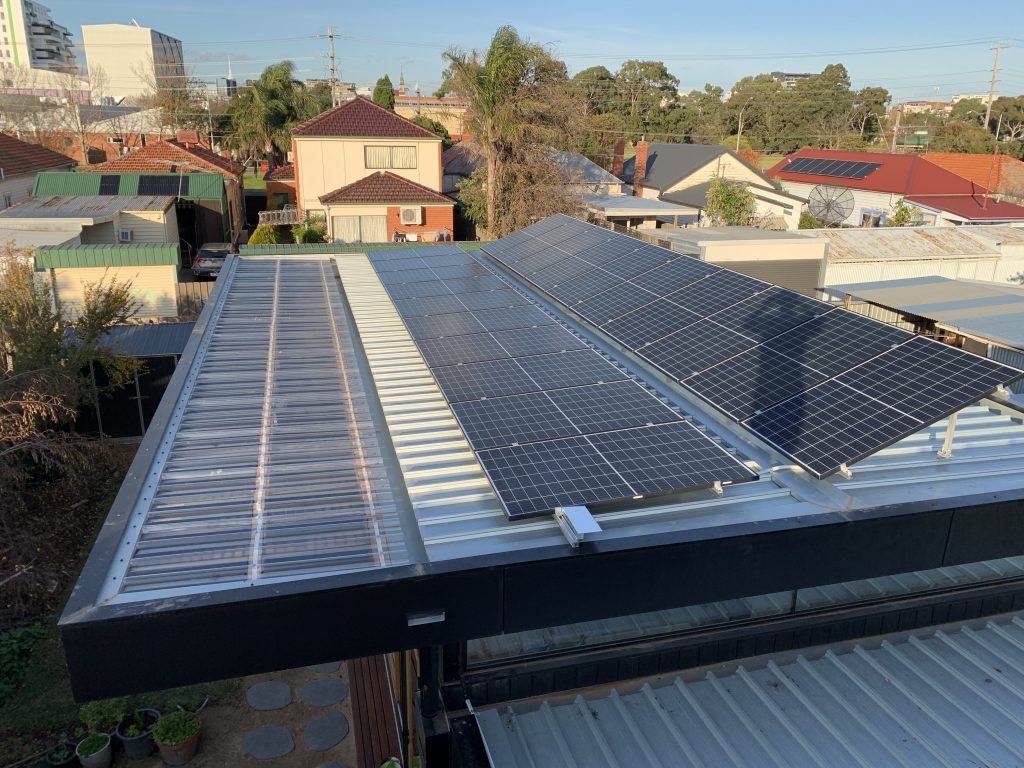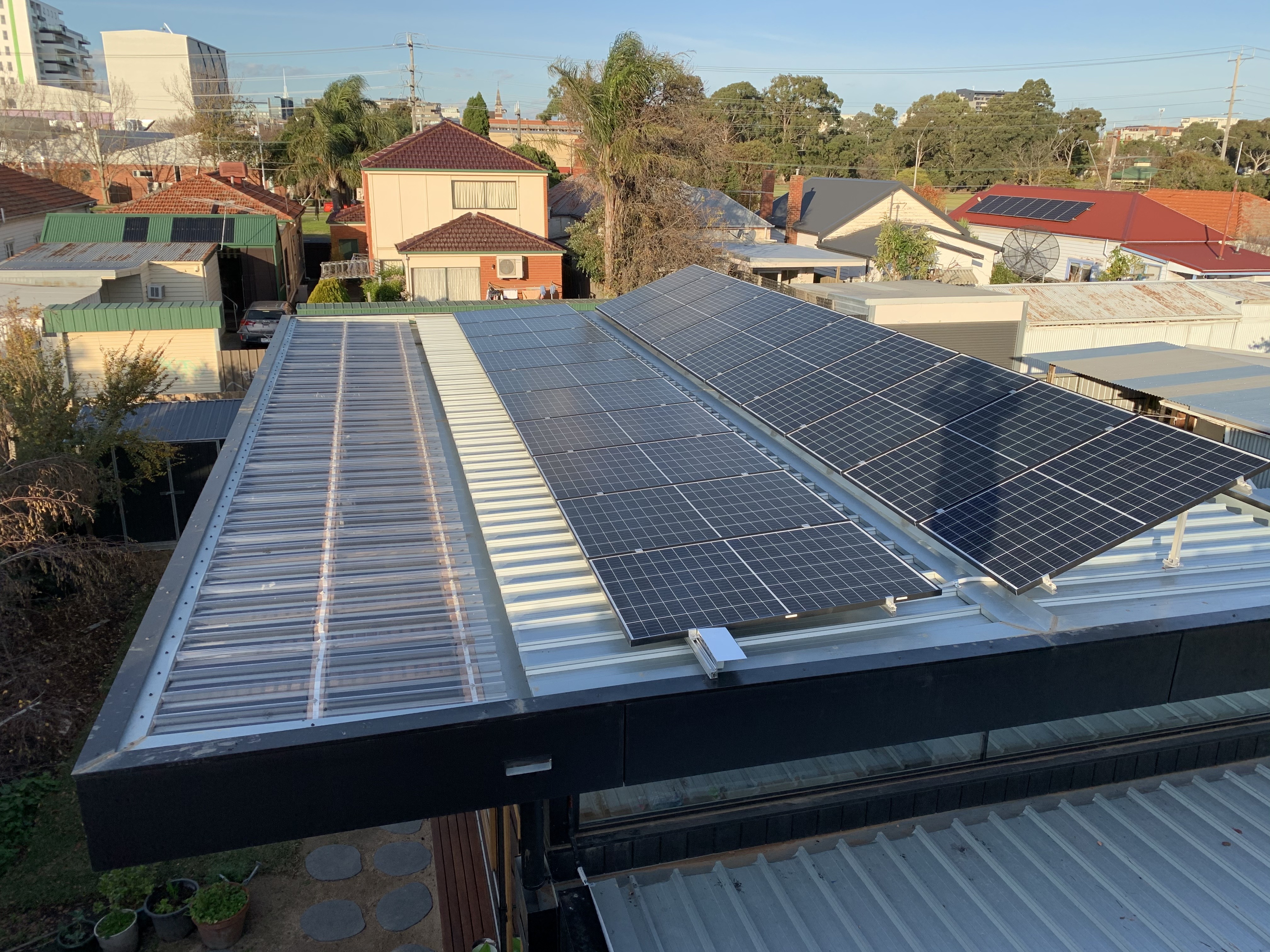
Solar energy refers to the power that comes from the sun. Solar panels collect sunlight and transform it into power.
When exposed to light, the silicon photovoltaic (PV) cells that make up each panel dislodge electrons from their orbits and set them free to flow.
Photovoltaics, solar architecture, solar heating, solar thermal energy, etc., are only a few examples of the ever-evolving technologies that harness the sun’s radiance and heat.
The 0.5% annual failure rate for solar panels indicates their high reliability. You can rest assured that the current failure rate is significantly lower, given that we are now in the 2020s and manufacturing technology has advanced.
Given the dependability of commercial solar panels, manufacturers can confidently offer 25- or 30-year warranties on power output.
That is to say, destroying your solar system is quite unlikely. In the event of a malfunction, the panel will be replaced at no additional cost as long as the warranty is still in effect.
Since its widespread acceptance, solar energy has been demonstrated to be a more dependable energy source than fossil fuels.
The solar panels and other parts that make up this renewable energy source are highly reliable and have lengthy guarantees. It’s also good for your money, which is a nice bonus.
Saving money on electricity costs is possible through the use of solar energy efficiency, which is a long-term investment.
Concerned about the high cost of electricity? Learn how solar power can reduce your costs, increase your home’s value, and reduce your tax liability.
What Occurs to Solar Panels?
If your system is connected to the power grid, you will have an endless supply of electricity so long as the grid is operational.
While solar panels may only generate power while the sun is shining, you still have complete access to the electric grid.
A widespread fallacy, however, is that commercial solar installation will guarantee you access to electricity even if the grid goes down or the power goes out. If you don’t have a battery or some other way to store energy, your grid-connected equipment will have to stop providing power until the grid is restored.
Are Solar Panels Reliable?
Solar panels, according to a recent study, have an outstanding track record of dependability and durability.
For their study, scientists analysed data from 54,500 panels that were put into service between 2000 and 2015. They discovered that annually, just 5 out of every 10,000 panels were unreliable.
As a result, the rate of failure for solar panels is less than 0.5%. Because of the vast improvements made to the manufacturing process over the years, you may rest assured that the current failure rate is much lower.
Due to their long lifespan and durability, solar panels might come with a 25-year or 30-year warranty on their power production from the manufacturer.
As a result, the likelihood of problems with your solar system is vanishingly small. As for the replacement of the panel at no cost, it is covered under the warranty, should the need arise.
Is Solar Energy a Stable Option for Powering My House?
Due to their reliance on sunlight, solar panels are not very useful at night and have variable energy output throughout the year. Fortunately, there are two simple solutions to this problem:
The term “nett metering” refers to a law that mandates utilities pay customers that export excess solar electricity to the grid for doing so.
Credits are often issued at the same cents-per-kilowatt-hour rate at which you purchase electricity.
Residential solar panels can be used to charge batteries, which can then be used to power your home at night.
However, most homeowners who have the option to do so choose not to pair their solar panels with a battery system.
In this case, the economic worth of your solar energy can be utilised without the need for costly upfront investment in batteries thanks to nett metering.
It would be difficult to exaggerate the value of nett metering as an incentive.
Being connected to the grid at all times eliminates the need to ever worry about running out of electricity and allows you to offset the cost of your energy consumption by selling any excess solar power you generate during the day.
What Will Happen If My Solar Panels Stop Working?
The manufacturer’s warranty on your solar panels should cover any damage or failure for the first 25 to 30 years.
Most solar panels will have a guarantee on both the quality of the materials and the efficiency of the final product.
Any problems with the panel’s materials or construction will be covered by the warranty. The performance warranty ensures that the panel’s efficiency will not degrade below a certain threshold.
Even if you did something to void the warranty, like use a power washer to clean the panels, the manufacturer should replace the defective panel at no cost to you.

Is there a method to monitor your solar array to prevent wasted energy production caused by malfunctioning components?
Look at your utility bills closely, or examine the data provided by the monitoring software for your solar array.
Monthly electricity consumption and grid connection information is often provided by several service providers.
A fault with your solar panel system could be the cause of a significant increase in your electric bill despite your use of the grid for power.
Reasons Why Solar Power Can Be Relied On
Raised Output
A solar panel system is less expensive. Recent years have seen enormous improvements in the availability, affordability, efficiency, and durability of batteries and solar panels.
Also, unlike traditional power, which frequently goes out during rain and storms, solar panels and other renewable energy sources offer consistent energy and peace of mind all year round.
Cost-Effective
To reduce your overall impact on the environment and your wallet, consider installing solar panels.
The solar panels in the Surface Solar System are meant to restore the power lost due to cloud cover or other environmental factors.
Using this method would do away with the need for diesel generators and the time and money involved in refilling the gas tanks.
Installing a solar energy system in your home is a surefire way to improve your efficiency and cut your energy costs all year long.
Power Source Regulation
When you instal a solar energy system in your home, you no longer have to worry about being without power if the grid should ever go down.
One will send the power from your solar panels directly to your home’s electrical devices during the day.
At night, the solar system’s batteries may power the appliances. Solar panels are an excellent option for those who want to become self-sufficient in terms of energy and have a reliable source of power.
Sustainable Power Generation
Energy from the sun may be replenished indefinitely. As a result, you can reduce your consumption of oil, coal, and natural gas.
In addition to polluting the air and water, the emissions from these energy sources can also damage soil and vegetation.
It is widely agreed that using fossil fuels is bad for the environment since it leads to global warming. As opposed to other forms of energy, solar panels do not contribute to global warming.
The sun is a renewable energy source that never runs out and never harms the environment in the process.
Using solar energy would safeguard the environment while also reducing our reliance on finite, nonrenewable energy sources.
Therefore, solar power is seen as a secure energy source and a good bet for the future of the world.
Are Solar Panels a Reliable Source of Energy?
Since solar energy was widely used, it has consistently outperformed traditional fuels. Electricity generated by the sun is reliable since its parts rarely fail and are covered by lengthy guarantees.
The financial benefits are an added bonus. Investment in solar energy is a reliable option that can drastically reduce monthly power bills.
You may stop overpaying the utility company and start saving money on your electricity bill, as well as on your property tax, by switching to solar energy.
Therefore, solar cells may provide various quantities of power to operate your home depending on the season.
Even if those are your concerns, we can find solutions. Some solar panels can charge batteries with the energy they generate. Batteries are charged when solar panels are exposed to direct sunlight.
Battery storage allows you to use solar energy to power your home even when the sun isn’t blazing as brilliantly.
During the monsoon and winter, when sunlight is scarce, you may wonder if solar energy can provide enough power for your home.
As a result, you may need to rely on traditional electricity throughout the winter and monsoon months if your solar panels can only provide enough power to run your home during the summer and spring.
On the other side, the batteries in your solar energy system would help to prevent this issue by keeping the energy available for later use. You may use the energy stored in them to keep the lights on during cloudy spells.
It’s reassuring to know that solar panels have a 0.5% yearly failure rate. Makers can reliably provide 25- or 30-year warranties on power output.
If the panel ever stops working while the warranty is still active, it will be replaced at no extra cost to you. Investing in solar energy efficiency is a long-term strategy for improving energy productivity.
Since solar panels can last for decades without needing replacement, the manufacturer may guarantee their power output for 25 or 30 years.
As a result, the risk of difficulties with your solar system is vanishingly minimal. You can expect a warranty on the solar panels you purchase, and they should cover both the materials and the performance.
It is covered by the warranty if there are any issues with the materials or workmanship of the panel. Numerous suppliers typically report monthly electricity consumption and grid connection data.
If you utilise the grid to power your home, an issue with your solar panel system could lead to a big rise in your monthly electric cost.
If you want to be independent of the energy grid and have a steady supply of juice, solar panels are a great solution. Solar power has been superior to other energy sources ever since it became extensively used.
Solar power is dependable since its components seldom fail and are backed by extensive warranties. Protection of the environment and less consumption of nonrenewable energy sources are both benefits of switching to solar power.
